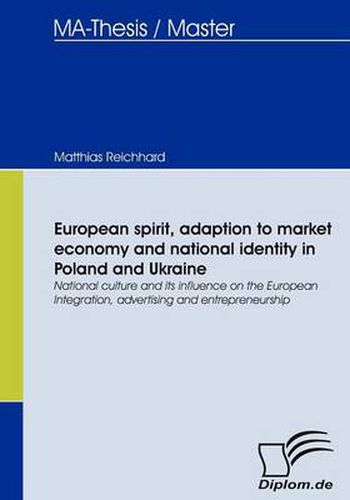Readings Newsletter
Become a Readings Member to make your shopping experience even easier.
Sign in or sign up for free!
You’re not far away from qualifying for FREE standard shipping within Australia
You’ve qualified for FREE standard shipping within Australia
The cart is loading…






This title is printed to order. This book may have been self-published. If so, we cannot guarantee the quality of the content. In the main most books will have gone through the editing process however some may not. We therefore suggest that you be aware of this before ordering this book. If in doubt check either the author or publisher’s details as we are unable to accept any returns unless they are faulty. Please contact us if you have any questions.
When at the turn of the 1980, the face of the political world was largely remodelled with the vanishment of classical East and West blocs, the economical wasteland created by the failed socialist planned economic system constituted a fascinating research pasture for economists of all disciplines - especially macroeconomists and specialists for economic politics. At universities, new faculties for transformation studies were created. Authors like Rodrick elucidated the reasons for the acute period of the COMECON alliance in form of teh Soviet trade shock, de Melo, van den Mortel a.o. discussed reasons for discrepancy of initial condions, Aghion & Blanchard about the speed of transition, just like Wyplosz, Fischer & Sahayestablished a balance sheet after a decade of transition. However, the preponderant part authorship dedicated to the fate and future of Central and Eastern European countries left apart a force of influence which disciplines of business adminitration have discovered for disciplines like management and staff motivation: culture. The author of the present study did extended research for working papers a.o. which may provide hints for characteristics of development visible in two exemplaric states, out of which one used to be part fo the soviet Union (Ukraine), the other a satellite brother country (POland), which lie below the surface of economic behaviour and performance. The result of this quest was y and large that there indeed do exist works which deal with the selected econo-political aspects; however, most authors refer to the five dimensions of national culture presented by Hofstede, which in the author"s opinion oversimplify the complex and difficultly obervable domain fo culture, sometimes even is entangled in contradictions like with the high masculinity/femininity index for Italy. This is why the author rather oriented by the need-belief-value-attitude continuum described by Culatta and thus developped his chapters on EU accession, adv
$9.00 standard shipping within Australia
FREE standard shipping within Australia for orders over $100.00
Express & International shipping calculated at checkout
This title is printed to order. This book may have been self-published. If so, we cannot guarantee the quality of the content. In the main most books will have gone through the editing process however some may not. We therefore suggest that you be aware of this before ordering this book. If in doubt check either the author or publisher’s details as we are unable to accept any returns unless they are faulty. Please contact us if you have any questions.
When at the turn of the 1980, the face of the political world was largely remodelled with the vanishment of classical East and West blocs, the economical wasteland created by the failed socialist planned economic system constituted a fascinating research pasture for economists of all disciplines - especially macroeconomists and specialists for economic politics. At universities, new faculties for transformation studies were created. Authors like Rodrick elucidated the reasons for the acute period of the COMECON alliance in form of teh Soviet trade shock, de Melo, van den Mortel a.o. discussed reasons for discrepancy of initial condions, Aghion & Blanchard about the speed of transition, just like Wyplosz, Fischer & Sahayestablished a balance sheet after a decade of transition. However, the preponderant part authorship dedicated to the fate and future of Central and Eastern European countries left apart a force of influence which disciplines of business adminitration have discovered for disciplines like management and staff motivation: culture. The author of the present study did extended research for working papers a.o. which may provide hints for characteristics of development visible in two exemplaric states, out of which one used to be part fo the soviet Union (Ukraine), the other a satellite brother country (POland), which lie below the surface of economic behaviour and performance. The result of this quest was y and large that there indeed do exist works which deal with the selected econo-political aspects; however, most authors refer to the five dimensions of national culture presented by Hofstede, which in the author"s opinion oversimplify the complex and difficultly obervable domain fo culture, sometimes even is entangled in contradictions like with the high masculinity/femininity index for Italy. This is why the author rather oriented by the need-belief-value-attitude continuum described by Culatta and thus developped his chapters on EU accession, adv